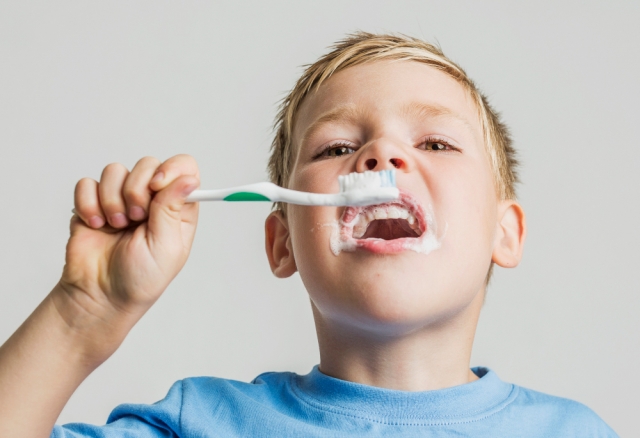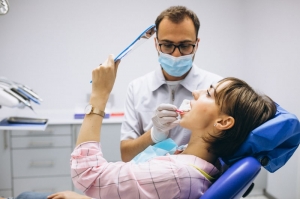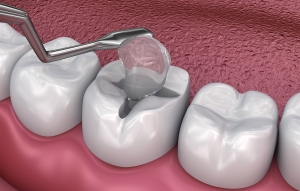It starts quietly. A child smiling less in photos. Words coming out slower. A soft wince when eating something sweet. At first it looks like nothing. A bad day maybe. Tiredness. But sometimes it is more.
Dental pain hides well. It does not always show up as crying or complaints. Sometimes it just turns into silence. Teachers see it. Parents notice later. It can be the reason a student loses focus or starts skipping words when reading aloud.
Clinics that provide dentistry in Baulkham Hills see this pattern all the time. The work they do goes beyond fixing teeth. It helps children find their voice again.
When Tooth Pain Becomes a Distraction
Pain takes space in the mind. Even when mild it pulls attention away from learning. A student might stare at the board but think about their tooth.
The Australian Institute of Health and Welfare found that children with untreated oral problems miss far more school days than those with healthy teeth. It is not laziness or avoidance. It is just hard to learn when something always hurts.
Small Changes in Speech
Teeth shape how we speak. When something hurts or shifts it changes sound. A small cavity can make “s” and “th” harder. Kids start talking softer to hide it.
Dr Laura Bailey from the University of Sydney once said, “When pain limits mouth movement children adapt, but those habits can stay long after the pain is gone.”
That quiet adjustment can last for years. It becomes part of how a child communicates, even when they do not mean it to.
The Confidence Problem No One Talks About
Confidence slips in silence. A child who used to laugh loudly starts smiling with their lips closed. Another avoids photos. It happens slowly until teachers think they are just shy.
No one realises that the issue is not attitude. It is embarrassment. Kids can feel judged for something they cannot control. That awareness changes how they move, speak, and interact.
A calm visit and kind words from a dentist can undo a lot of that. Being listened to matters. It builds safety before any treatment begins.
What Lunch Tells Us
Lunch boxes say a lot about routine. Juice boxes, sweet snacks, sticky bars. Quick food for busy mornings. It is normal. It is also one reason cavities keep returning.
Sugary foods feed bacteria. The result is pain, bad breath, or bleeding gums. Then the teasing begins. It hurts more than anyone admits.
A few swaps help. More water. Crunchy vegetables. Cheese. A dentist from Baulkham Hills once said that prevention is simple but powerful. A steady habit is stronger than any fancy toothpaste.
How Emotions and Pain Mix
Pain changes behaviour. Children get restless or quiet. Sometimes they stop eating properly. Sometimes they just stare more. It looks like moodiness. It is really discomfort.
Chronic oral pain can raise stress hormones. That leads to shorter attention spans and even sleep issues. A small ache becomes a full body tension. Adults forget how consuming that can be for a child.
Catching it early is not complicated. Regular check ups, simple conversations, and softer food for a few days can make a difference.
Schools Have a Role Too
Schools can normalise care. Posters that show brushing steps. Water breaks during the day. Health classes that talk about sugar and snacks.
Some schools around Baulkham Hills have small programs with local dentists who visit for free checks. Kids respond well when it feels relaxed and friendly. They remember that a dentist is not someone to fear.
That memory stays. It becomes the start of lifelong habits.
Why It Matters So Much
Healthy mouths do more than look nice. They help kids feel seen. A confident smile makes group work easier. Reading out loud easier. Friendships easier.
Parents often say they notice the change first. A more open laugh. A louder voice. The teacher sees it next. That is the ripple of good dental care. It spreads quietly through everything.
The Real Cost of Ignoring It
Pain does not go away by pretending. It becomes routine. Then sleep breaks, attention drops, and the body starts reacting in small ways. Fatigue. Short temper. Less patience.
It is not misbehaviour. It is survival. And fixing it later is harder, more expensive, and often more painful than acting early.
Prevention always wins. Simple, regular care stops the spiral before it starts.
The Takeaway
Good oral hygiene is more than clean teeth. It is a kind of confidence. A base for everything else.
Parents, teachers, and dentists each hold a piece of the puzzle. When they work together, a child grows into someone unafraid to smile or speak up.
That is what matters most. Not perfect teeth. Just the courage to grin without thinking about it.
Frequently Asked Questions
How can poor oral health affect learning
Children who live with dental pain lose focus and energy in class. It makes reading and group work harder.
Why does confidence drop with bad teeth
Kids become self conscious when something feels or looks wrong. They hide smiles and speak less.
Can speech really change because of teeth
Yes. Teeth and tongue positioning affect sounds. Pain or gaps make clear speech difficult.
What can schools do to help
Schools can offer awareness days, free dental checks, and simple lessons about healthy food and brushing.
When should parents start regular check ups
As soon as the first tooth appears or by the first birthday. Early visits make care feel normal, not scary.






